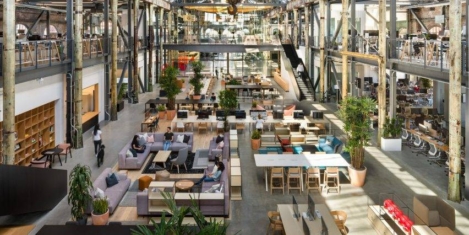To provide the best experiences, we use technologies like cookies to store and/or access device information. Consenting to these technologies will allow us to process data such as browsing behaviour or unique IDs on this site. Not consenting or withdrawing consent, may adversely affect certain features and functions.
The technical storage or access is strictly necessary for the legitimate purpose of enabling the use of a specific service explicitly requested by the subscriber or user, or for the sole purpose of carrying out the transmission of a communication over an electronic communications network.
The technical storage or access is necessary for the legitimate purpose of storing preferences that are not requested by the subscriber or user.
The technical storage or access that is used exclusively for statistical purposes.
The technical storage or access that is used exclusively for anonymous statistical purposes. Without a subpoena, voluntary compliance on the part of your Internet Service Provider, or additional records from a third party, information stored or retrieved for this purpose alone cannot usually be used to identify you.
The technical storage or access is required to create user profiles to send advertising, or to track the user on a website or across several websites for similar marketing purposes.
 This week’s beachcomb of the best workplace stories is brought to you in the wake of the first flood of retrospectives and predictions that wash up in the media at this time of year. The first piece of flotsam [sound of a metaphor snapping] is Dezeen’s listing of the world’s best office designs of 2018, which appears to be based on the answers to three questions. Is it a coworking space? Does it look like an office? Is there anybody actually working there? Answer yes, no, no to those three simple questions and you’re in the frame.
This week’s beachcomb of the best workplace stories is brought to you in the wake of the first flood of retrospectives and predictions that wash up in the media at this time of year. The first piece of flotsam [sound of a metaphor snapping] is Dezeen’s listing of the world’s best office designs of 2018, which appears to be based on the answers to three questions. Is it a coworking space? Does it look like an office? Is there anybody actually working there? Answer yes, no, no to those three simple questions and you’re in the frame.



































December 7, 2018
Seven reasons why this will not be the office of the future
by Mark Eltringham • Comment, Facilities management, Furniture, Workplace design
(more…)